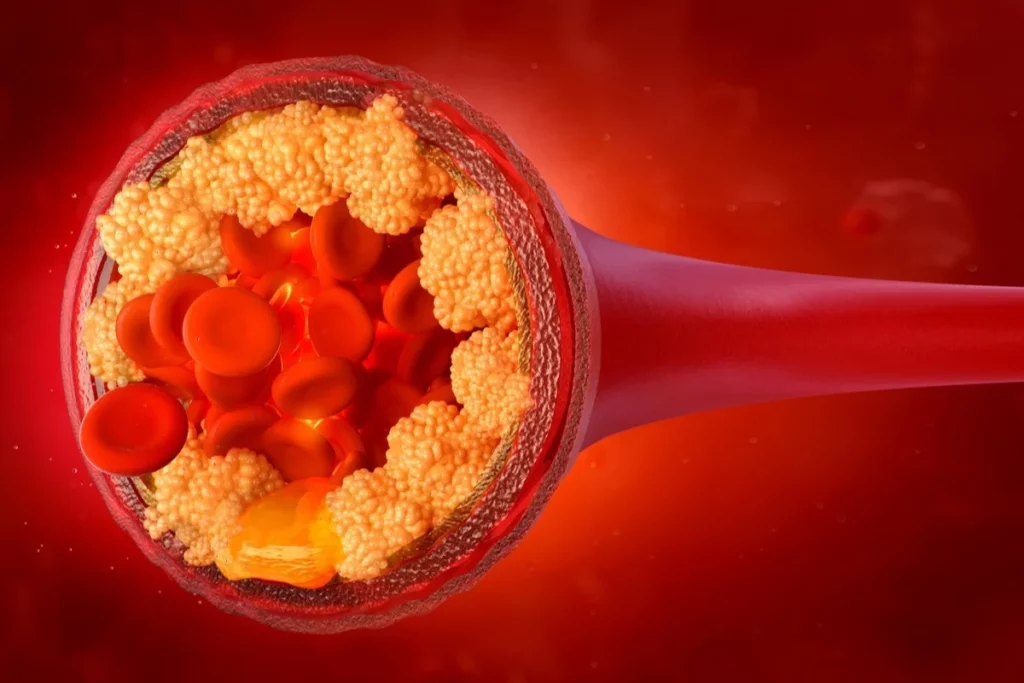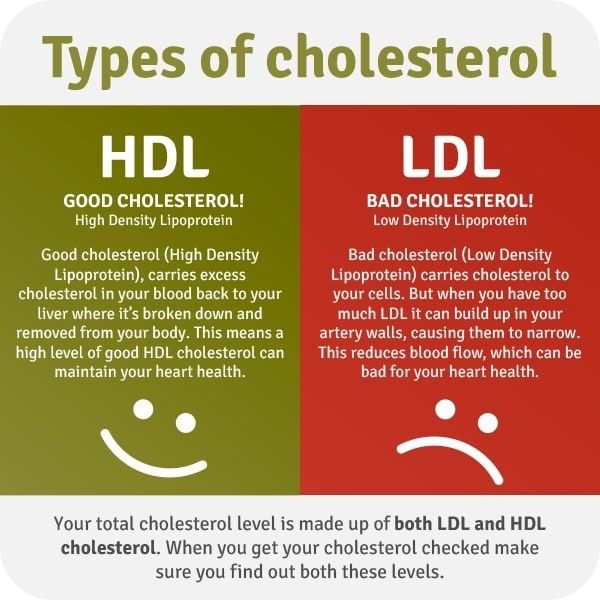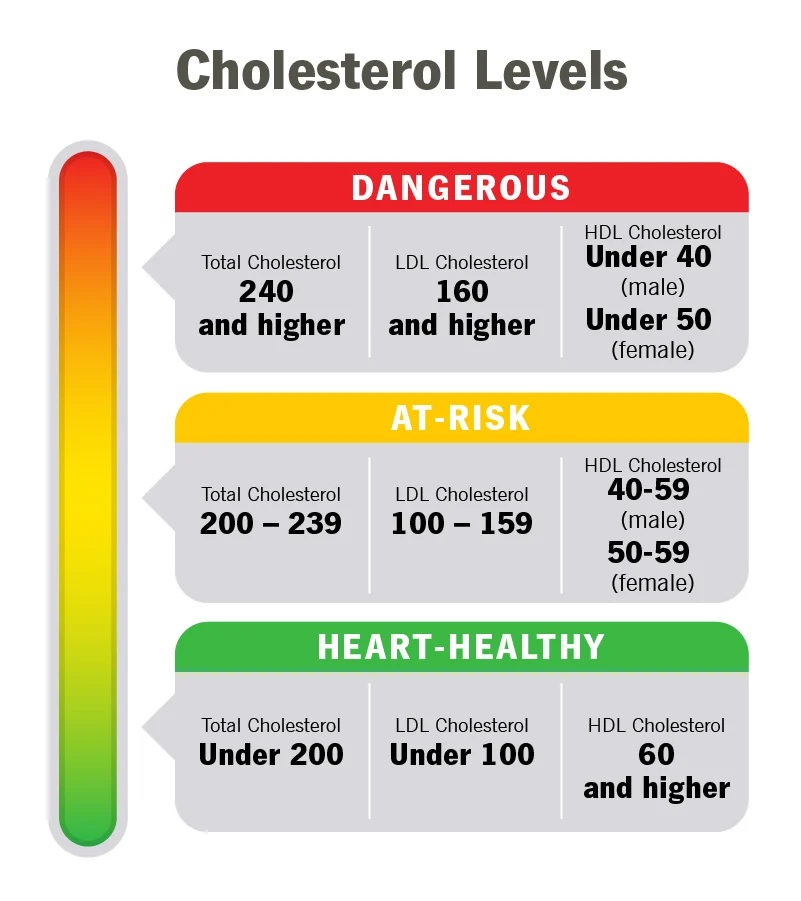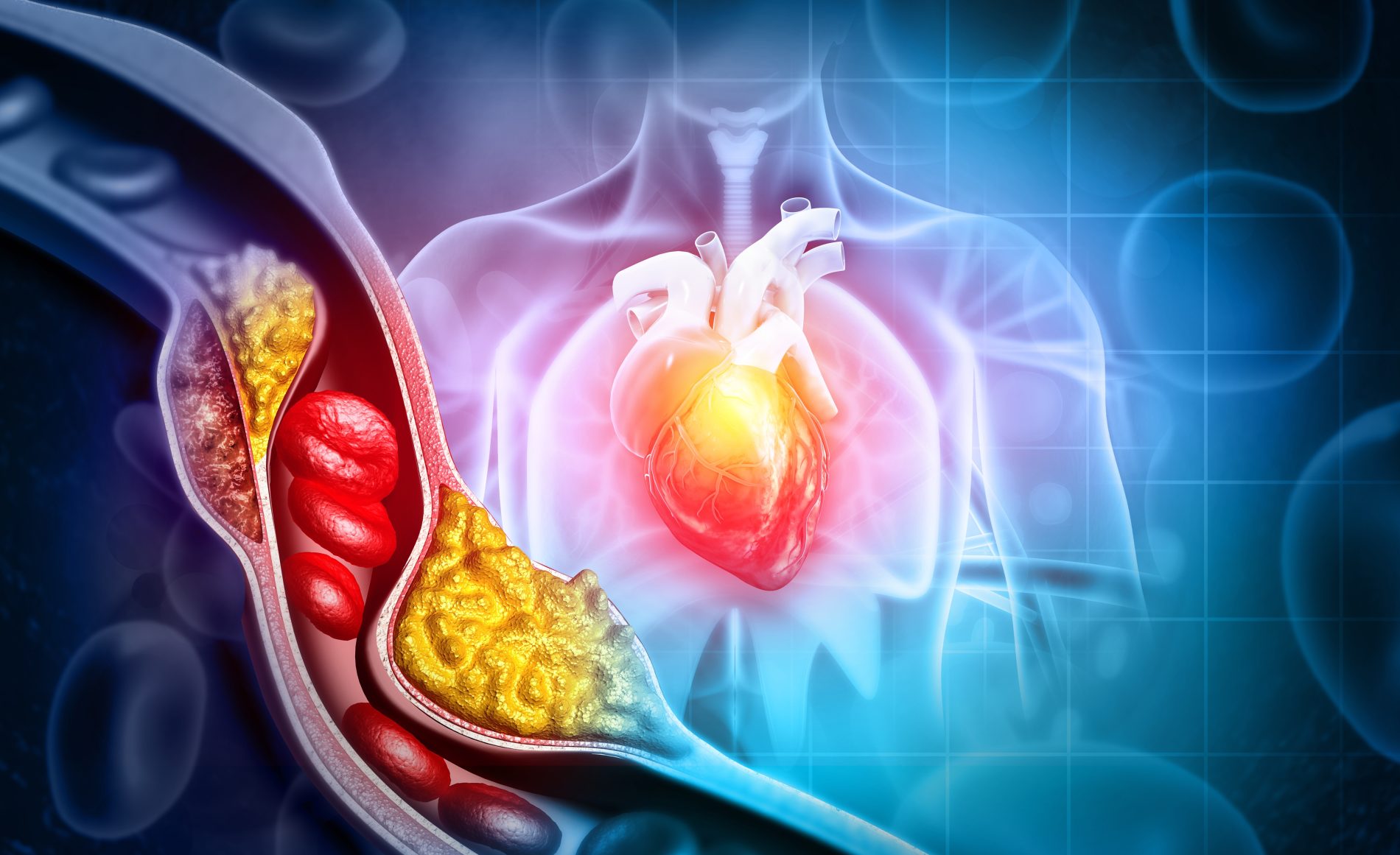Cholesterol is a waxy, fat-like substance found in the cells of your body and in the food you eat. It is transported through your bloodstream in tiny particles called lipoproteins. Cholesterol isn’t bad because it is essential for the proper functioning of your body, as it helps build cell membranes, produce hormones, and create vitamin D. Too much cholesterol however, can create problems. Cholesterol is primarily produced by your liver, but you also get cholesterol from the food you eat, especially from animal-based products like meat, dairy, and eggs.
Why you should be concerned about cholesterol

An increase of cholesterol in your blood increases your risk of cardiovascular disease such as heart disease and stroke. This is why, you should get your cholesterol regularly tested. While there are two types of cholesterol, good and bad, it is the bad which tends to increase clogging the inner walls of your arteries feeding your heart and brain.
Types of Cholesterol
There are two primary types of cholesterol: Low-Density Lipoprotein (LDL) and High-Density Lipoprotein (HDL).

Low-Density Lipoprotein (LDL): Often referred to as “bad” cholesterol, LDL carries cholesterol from the liver to the cells that need it. An excess of LDL cholesterol in your bloodstream, can accumulate on the walls of your arteries, forming plaque. This plaque can then narrow and block your arteries, increasing the risk of a heart attack or stroke. Moreover, it can lead to various heart conditions like:
- Coronary artery disease (CAD).
- Cerebrovascular disease.
- Peripheral artery disease (PAD).
- Aortic aneurysm.
Optimum Levels of LDL:
- Normal: Below 100 mg/dl.
- Borderline high: 101 to 129 mg/dl
- High: 160-189 mg/dl
- Very High: more than 190 mg/dl
High-Density Lipoprotein (HDL): HDL, often called “good” cholesterol, helps transport excess cholesterol back to the liver, where it can be processed and excreted from the body. High levels of HDL are associated with a lower risk of heart disease. You should aim to increase your HDL cholesterol levels as it can help offset the negative effects of LDL cholesterol.
HDL cholesterol levels should be above 40 mg/dL. The higher the number, the lower your risk. 60 mg/dL or above is considered perfect levels level to protect you against heart disease. On the other hand, an HDL level below 40 mg/dL for men and 50 mg/dL for women is considered a risk factor for heart disease.
VLDL (Very-Low-Density Lipoprotein): Another almost bad guy which carries triglycerides in the blood stream. High levels of VLDL put you at risk of plaque in the arteries.
Optimum level of VLDL: 2 -30 mg/dl
Total Cholesterol: Total cholesterol is the sum of your LDL and HDL cholesterol levels. plus 20% of your triglyceride level. The American Heart Association (AHA) recommends that adults aim for a total cholesterol level of less than 200 milligrams per deciliter (mg/dL).
Normal: Less than 200 mg/dL. Borderline high: 200 to 239 mg/dL. High: At or above 240 mg/dL.
Triglycerides: Triglycerides are another type of fat found in the blood and play a role in heart health. It’s recommended to maintain triglyceride levels below 150 mg/dL. Elevated triglycerides can contribute to atherosclerosis.

These target levels are important, but it’s equally crucial to consider your individual risk factors. Factors like age, family history, smoking, and pre-existing health conditions can influence your optimal cholesterol levels. Your healthcare provider can help you determine the best approach for managing your cholesterol based on your unique situation.
What causes high cholesterol?
Besides an unhealthy diet, there are certain health conditions, such as type 2 diabetes and obesity, that can increase the risk for high cholesterol. A diet high in saturated and trans fats and not getting enough activity, can also raise your risk for high cholesterol. High cholesterol can also run in families and are called “risk factors.” While risk factors cannot be controlled, preventive measures can be taken to lower your risk for high cholesterol
Symptoms of high cholesterol
High cholesterol has no symptoms, but of course once excess cholesterol creates cardiovascular issues, the symptoms of the related condition begin to appear. The only way of knowing you have high cholesterol is to get your levels checked regularly. The NHLBI (National Heart, Lung, and Blood Institute), recommends that cholesterol screenings occur every one to two years for men ages 45 to 65 and for women ages 55 to 65. People over 65 should receive cholesterol tests annually.
Managing Cholesterol Levels
Maintaining healthy cholesterol levels is a vital component of cardiovascular health. Here are some strategies to help you manage your cholesterol effectively:
- Diet: Making dietary changes can have a significant impact on your cholesterol levels. Reduce saturated fats and trans fats, which can raise LDL cholesterol, and increase your intake of foods rich in fiber, such as whole grains, fruits, and vegetables. Omega-3 fatty acids, found in fatty fish like salmon and walnuts, can help increase HDL cholesterol.
- Regular Exercise: Physical activity can help lower LDL cholesterol and raise HDL cholesterol. Aim for at least 150 minutes of moderate-intensity aerobic exercise or 75 minutes of vigorous-intensity exercise each week.
- Weight Management: Losing excess weight can improve your cholesterol levels. Even a modest weight loss can have a positive impact on your overall health.
- Medication: In some cases, lifestyle changes alone may not be sufficient to manage cholesterol levels, especially if you have a high risk of heart disease. Your healthcare provider may recommend medications like statins to help lower LDL cholesterol.
- Regular Monitoring: Regular check-ups with your healthcare provider are crucial to monitor your cholesterol levels. They can help you make informed decisions about managing your cholesterol and assessing your overall cardiovascular health.
Understanding the different types of cholesterol and the optimum levels to aim for is essential in maintaining good cardiovascular health. By making healthy lifestyle choices, including diet, exercise, and weight management, and consulting with your healthcare provider, you can take control of your cholesterol levels and reduce your risk of heart disease and stroke. Remember that cholesterol management is a long-term commitment to your health, and the benefits of maintaining optimal levels will pay off in the long run.


2 Comments